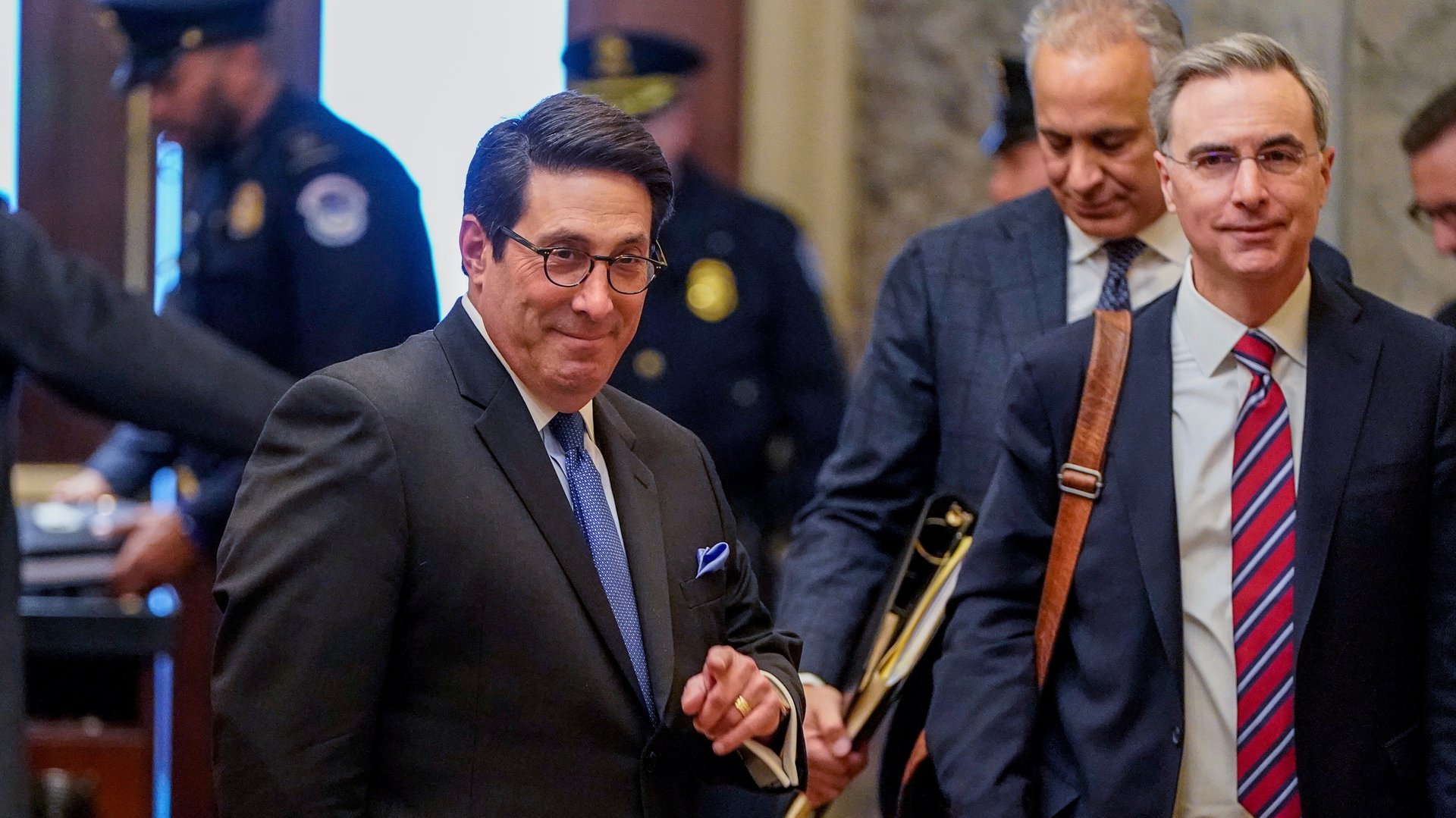Trump promptly undermined a strategically brief impeachment defense
US president Donald Trump’s impeachment defense team delivered opening statements in a two-hour Saturday session in the Senate yesterday. The brevity was strategic, serving multiple purposes.


US president Donald Trump’s impeachment defense team delivered opening statements in a two-hour Saturday session in the Senate yesterday. The brevity was strategic, serving multiple purposes.
After a grueling week of “pettifogging”—as Supreme Court chief justice John Roberts put it when chiding the parties for late-night procedural wrangling—and extensive prosecution presentations, the prospect of minimal sitting surely came as a relief to exhausted senators. Doubling down on this favor, the president’s lawyers promised more of the same, working all the angles on their reticence.
“We don’t anticipate needing 24 hours,” White House counsel Pat Cipollone began on behalf of the defense team. “We don’t believe [House managers] come anywhere close to meeting their burden [of proof].”
With this, Cipollone signaled that team Trump was being eminently reasonable in contrast to the opposition and that the prosecution’s case was flimsy. As a style choice, it was smart insofar as it flipped the script on lead House trial manager Adam Schiff and his team, who took the full 24 hours of argument allotted to them and are insisting that the trial include witnesses and additional evidence.
Presidential defenders broke down the abuse of power and obstruction of Congress charges against Trump in measured tones suited to the gravity of the occasion. Yet, they contended the prosecution is the true threat to national security, not the president.
Cipollone told senators that Democrats were asking them “to do something very, very consequential and very, very dangerous”—trumping up impeachment articles to overturn election results. He claimed their case was deliberately “misleading” and they were “trying to confuse” and second-guess the American people.
Mind reading was a theme throughout. “This case is really not about presidential wrongdoing but House managers who can read everyone’s thoughts even when people say otherwise,” argued defense counsel Jay Sekulow.
In his view, the prosecution’s record is built only on inferences—assumptions Schiff made about the president’s Ukraine dealings, based on interpretations of people who didn’t even deal directly with Trump. “I appreciate your service to your country. I really do. But let’s get our facts straight,” Sekulow told House managers.
To Americans, senators, and the public and press watching from the gallery, Sekulow said, “They think you can read minds. I think you can read words.”
The defense is relying on the reconstructed record of a July 25 phone call between Trump and Ukrainian president Volodymyr Zelensky, referring to it incorrectly as a “transcript.” They say it proves the president was acting on behalf of national, rather than personal, interests when he asked the foreign leader to “do us a favor” and investigate Democratic political rival Joe Biden after he became a 2020 presidential contender.
As for accusations Trump withheld congressionally approved military aid to Ukraine, conditioned on Zelensky doing this favor, the defense argued this, too, was patently untrue. Trump was simply reviewing foreign aid packages as part of a general policy to scrutinize such funding. Ultimately, Ukraine got the money and Zelensky said he felt no pressure, so no big deal.
The president’s lawyers kept the tone respectable while arguing that Democrats don’t trust Americans or anyone else to say what they mean or mean what they say—and will fill in the blanks with misguided interpretations—which of course means they themselves can’t be trusted.
Some were convinced, satisfied the president’s case had been made.
But Trump promptly undermined his lawyers’ careful balance of disdain and feigned respect for Democrats’ “service” to the nation, having woken up feeling tweety today. He called Schiff a “CORRUPT POLITICIAN” and seemed even to threaten him.
The president, like his lawyers, was also intent on flipping the script, accusing his accusers of the very things he stands on trial for now. He called the “Impeachment Hoax” an attempt to interfere with national elections, which is of course what the president has been investigated for by Congress twice now since he took office three years ago.
Trump might do better leaving the arguments to his defenders. So far, they’ve shown they can play to an audience at least, while the president’s tweets only seem mad (however you may interpret that last word).